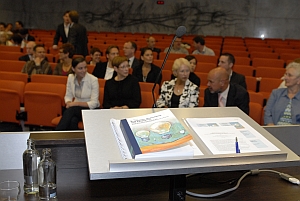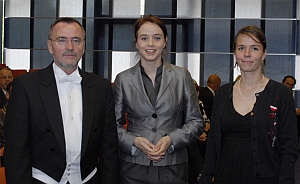Electricity markets do not yet exist (in the Netherlands and France)
 Regulation continues to play a pervasive role in the liberalised electricity industries. It influences the attributes of the electricity transactions, the new governance structures and the adaptation process towards the new structures. Moreover, the vertically integrated hierarchies that characterised the industries before the liberalisation are more efficient structures to coordinate the electricity transactions, and the current hybrid structures should therefore be regarded as second-best solutions.
Regulation continues to play a pervasive role in the liberalised electricity industries. It influences the attributes of the electricity transactions, the new governance structures and the adaptation process towards the new structures. Moreover, the vertically integrated hierarchies that characterised the industries before the liberalisation are more efficient structures to coordinate the electricity transactions, and the current hybrid structures should therefore be regarded as second-best solutions.
These are some of the findings of Eva Niesten in her PhD thesis entitled “<link erim events _blank>Regulation, Governance and Adaptation: Governance transformations in the Dutch and French liberalising electricity industries”. Niesten has defended her thesis on June 11.
Eva Niesten’s thesis handles the unbundling of the electricity networks from the integrated energy firms and the possibility for consumers to choose their electricity retailer in the Netherlands and in France. The main conclusion of the thesis is that the new governance structures that emerged for several electricity transactions, such as the network access, balancing and switching transactions, are hybrid forms of governance that remain extensively regulated. The European Commission aimed to create a market for electricity in the European industries. Such a market did not emerge in the Dutch and French electricity industries.
Also, Niesten finds that if the European Commission aims to introduce a market, it should not restrict its policies to structural measures, such as the unbundling of the energy firms. The policies should also aim to reduce the specificity of the transactions, and stimulate economic actors to adapt to a new governance structure with a unilateral response and to changes in prices.
About Eva Niesten:
Eva Niesten was born on August 14, 1978 in Breda. She finished secondary school in Maastricht in 1996, and studied international business and psychology at the Maastricht University. In 1999, she transferred to the University of Tilburg, and graduated in economics in the summer of 2002. In 2000, she studied political economy at the Université Paris 1-Panthéon Sorbonne. Eva started as a PhD candidate at the Rotterdam School of Management, Erasmus University in November 2002. She spent a few months as a visiting scholar at the Groupe Réseaux - Jean Monnet and studied at the École Supérieure d'Électricité in Gif-sur-Yvette.
Her research interests include the liberalization of network industries, the role of the government in liberalization processes, regulation and the institutions of regulation, the adaptation of governance structures, innovation and sustainable development, the energy industry, and new institutional economics and transaction cost economics. Her research has been published in Annals of Public and Cooperative Economics and in the International Review of Applied Economics. She is a member of the council and secretariat of the European Association for Evolutionary and Political Economy. Since 2006, she has been working as an editor for the Dutch journal Economisch Statistische Berichten. Currently, she works as a researcher at the Netherlands Bureau for Economic Policy Analysis (CPB). From September 2009, she will work at the European University Institute in Florence as a Jean Monnet fellow.
 Abstract:
Abstract:
For more than a decade, the European governments have focused their energy policies on creating one European competitive electricity market. Several regulations are introduced into the European electricity industries for this purpose: the energy firms have to unbundle the electricity networks from electricity generation and retail, and the consumers should be able to choose their electricity retailer. This thesis analyses which new governance structures emerged in the Dutch and French electricity industries as a result of these regulations for four types of electricity transactions: the network connection, network access, balancing and switching transactions. The parties in these electricity industries did not adopt a market, but hybrid forms of governance that remained extensively regulated. The efficiency of these new governance structures cannot be explained with the attributes of the transactions, as is proposed by transaction cost economics. This thesis therefore introduces the concept of adaptation into transaction cost economics. Adaptation is the adjustment by economic actors from one governance structure to another, and is characterized by three attributes: the identity of the future contracting party, the laterality of the adaption, and the type of response in the adaptation process. These attributes explain the governance transformations and the new governance structures in the two industries. Regulation continues to play a pervasive role in the liberalized electricity industries. It influences the attributes of the transactions, the new governance structures and the adaptation process.
More Information
Full Text of the Dissertation
Pictures of the Event


